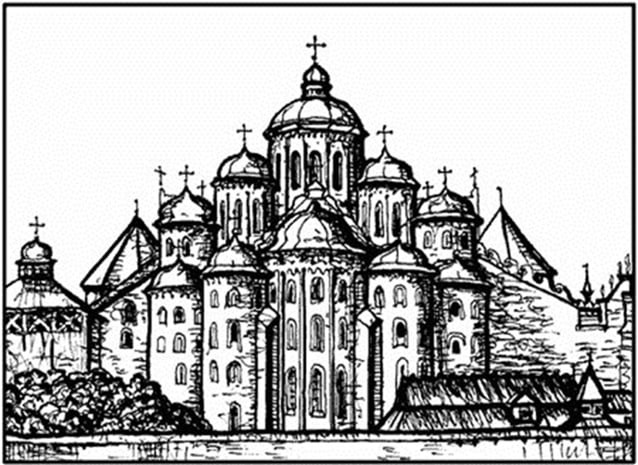TRANSLATION AND TEACHING OF CLASSICAL ANCIENT GREEK LITERATURE IN UKRAINE: CULTURAL INFLUENCE AND HISTORICAL DIMENSION
DOI:
https://doi.org/10.20535/2410-8286.295381Keywords:
Ukrainian school of translation, Ukrainian "Homeriana", translated literature, Ancient Greek literatureAbstract
The article studies the translation of the Ancient Greek literature into Ukrainian as an important and historically conditioned process that influenced the translation tradition in Ukraine. The authors trace the history of translation dating from the period of Kyivan Rus to modern times by applying linguistic, chronological and thematic approaches. As a result of the conducted study the authors define main directions and trends of assimilation of the classical Ancient Greek literature by the Ukrainian context through translation in its cultural and historical dimension, as well as characterize the translations of the Ukrainian scientists and outline their contribution into the classical literature corpus formation. It has been revealed that in different historical periods, translated literature performed definite functions (it was used in religious worship, as the material for original literature creation, in intellectual discussions). Since the 19th century, there existed a tendency when translators (M. Zerov, I. Franko, Lesya Ukrainka, V. Svidzinskyi, P. Nishchynskyi, M. Rylskyi, G. Kochur, Borys Ten, M. Lukash, M. Moskalenko, A. Sodomora, etc.), guided by their own preferences, cultural trends, national needs, political attitudes, consciously chose original texts for translation, carried out scientific investigations and added commentaries to their publications, thereby creating a scientific discussion in the Ukrainian society. It was also found out that translations of Homer's works into Ukrainian led to the emergence of a certain translational tradition (the same phenomenon is observed in Western Europe), when Ukrainian translators developed a methodology that allowed them not only to convey the ideological and content component of the original poems, but also to reproduce the rhyming of ancient poetry. The paper concludes that modern translators from the Ancient Greek language continue to popularize ancient literature and the legacy of the holy fathers, thereby supporting the continuity of the Ukrainian school of translation.
Downloads
References
- Bilous, P. (2009). Borys Ten u koli neoklasykiv [Boris Ten in the circle of Neoclassicists]. Volynʹ-Zhytomyrshchyna. Istoryko-filolohichnyy zbirnyk z rehionalʹnykh problem, 19, 156-164.
- Chamata, N. (2010). Pro osoblyvosti rannʹoho ukrayinsʹkoho hekzametra [On the peculiarities of early Ukrainian hexameter]. Slovo i Chas [Word and Time], 6, 105-116.
- Dombrovski, R. (2014). Andriy Sodomora – eseyist (do 75-richchya vid dnya narodzhennya) [Andriy Sodomora as an essayist (on the 75-th anniversary)]. Visnyk of the Lviv University. Series Foreit languages, 22, 218-224.
- Newman, K. & Tylus, J. (2015). Early modern cultures of translation. University of Pennsylvania Press.
 |
| 
- Even-Zohar, I. (2000). The Position of Translated Literature within the Literary Polysystem. In L. Venuti (Eds.), Translation Studies Reader (pp. 192-197). London & New York.
- Franko, I.YA. (1983). Zibrannya tvoriv: u 50-ty t. [Collection of works: in the 50s] (Vol. 39). Kyiv: Naukova dumka.
- Medcalf, S. (2008). Classical Authors. In R. Ellis (Eds.), The Oxford History of Literary Translation in England (Vol. 1) (pp. 364-389). Oxford University Press. New York.
- Moskalenko, M. (2018). Pereklady 1920-1930-kh rokiv [Translations of the 1920s and 1930s.]. Slovo i chas [Word and Time], 2, 19-31. http://dspace.nbuv.gov.ua/handle/123456789/166732
- Moskalenko, M. (1993). Narysy z istoriyi ukrayinsʹkoho perekladu [Essays on the history of Ukrainian translation]. Vsesvit, 9/10; 2006, 1/2. https://www.vsesvitjournal.com/old/content/view/146/41/
- Nida, E. (2000). Principles of Correspondence. In L. Venuti (Eds.), The Translation Studies Reader (pp. 126-140). London & New York.

- Pavlychko, S. (1999). Dyskurs modernizmu v ukrayinsʹkiy literaturi [Discourse of modernism in Ukrainian literature]. Kyiv: Lybid.
- Phillips, H. (2008). Nation, Region, Class and Gender. The Oxford History of Literary Translation in England (Vol. 1) (pp. 45-68). Oxford University Press. New York.
- Robinson, D. (2002). Western Translation Theory from Herodotus to Nietzsche. London & New York.
- Solonska, N.H. (2010). Knyzhna kulʹtura Kyyivsʹkoyi Rusi ta hretsʹka perekladna literatura X-XII st. [Book`s cultural of Kievan Rus and Greece interpretive literature of the X-XII centuries]. In S.Slesarev et al. (Eds.), Sivershchyna v istoriyi Ukrayiny. Zbirnyk naukovykh pratsʹ, 3, (pp.98-102). Kyiv: Hlukhiv.
- Strikha, M. (2020). Ukrayinsʹkyy pereklad i perekladachi: mizh literaturoyu i natsiyetvorennyam [Ukrainian translation and translators: between literature and nation building]. Kyiv: Dukh i Litera.
- Ten, B. (1967). Notatky pro rytmiku hekzametra [Notes on the Rhythm of the Hexameter], Movoznavstvo, 4. http://litmisto.org.ua/?p=10264
- Turhan, O. (2013). Retseptsiya antychnosti v ukrayinsʹkiy literaturi (diakhronichnyy aspekt) [Reception of antiquity in Ukrainian literature (diachronic aspect)]. Filolohichni seminary [Philological seminars], 16, 72-81.
- Vardanyan, M. (2020). Perekladatsʹka diyalʹnistʹ ukrayinsʹkoyi diaspory XX stolittya: napryamy ta zdobutky [Ukrainian Diaspora`s translating activities of the 20th century: direction and achievements]. Literatury svitu: poetyka, mentalʹnistʹ i dukhovnistʹ [World literatures: poetics, mentality and spirituality], 14, 16-26.
- Venuti, L. (2005). Local Contingencies Translation and National Identities. In S. Bermann & M. Wood (Eds.), In Nation, Language, and the Ethics of Translation (pp. 177-202). Princeton UP.

- Vermeer, H.J. (2000). Skopos and Commission. In L. Venuti (Eds.), The Translation Studies Reader (pp. 221-232). London & New York.

Downloads
Published
How to Cite
Issue
Section
License
Copyright (c) 2023 Zoia Kornieva, Iryna Borbenchuk, Yuliia Baklazhenko

This work is licensed under a Creative Commons Attribution 4.0 International License.
Authors who publish with this journal agree to the following terms:- Authors retain copyright and grant the journal right of first publication with the work simultaneously licensed under a Creative Commons Attribution License that allows others to share the work with an acknowledgement of the work's authorship and initial publication in this journal.
- Authors are able to enter into separate, additional contractual arrangements for the non-exclusive distribution of the journal's published version of the work (e.g., post it to an institutional repository or publish it in a book), with an acknowledgement of its initial publication in this journal.
- Authors are permitted and encouraged to post their work online (e.g., in institutional repositories or on their website) prior to and during the submission process, as it can lead to productive exchanges, as well as earlier and greater citation of published work (See The Effect of Open Access).


















